Syria: The doctor who won’t leave the war zone
Maissam Hamoui lives with her family in Aleppo. The war has been a part of family life for more than four years now. "I could get a nice job in France where both of my brothers live, but I have to …
Maissam Hamoui lives with her family in Aleppo. The war has been a part of family life for more than four years now. "I could get a nice job in France where both of my brothers live, but I have to …
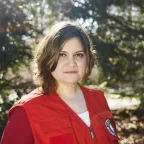
Three years after they were set up, three physical rehabilitation centres have been handed over to the Indus Hospital Network by the ICRC. Over 14,000 people with disabilities have so far benefited …
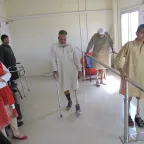
… on civilians, such as the loss of jobs and livelihood. We hope that these farm …
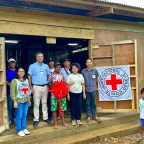
… province, they have survived by doing odd jobs in the fields, and they have been …
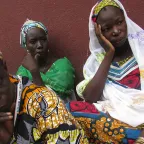
Five years since the revolution in Libya the bullets are still flying. The situation is getting worse as fighting intensifies, pushing people out of their homes. The following are portraits of four …
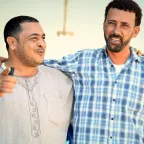
11-03-2016 Karachi (ICRC) - Today, a public-service campaign was launched in Karachi to get motorists to give way to ambulances and generally increase respect for ambulance services. Joining forces …
It was a whirlwind, red-letter romance. Mariegen Sumaylo was then a 31-year-old field nurse for the Philippine Red Cross (PRC) in 1991 when she first met her colleague, Alfonsito “Fons” Balo, in …

Exhibited at the 32nd International Conference of the Red Cross Red Crescent Movement, now in the ICRC Restaurant ahead of International Migrants Day, for three days only Donya Hafezi Haghani works …
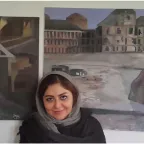
The ICRC is very concerned about the rise in violence in the run-up to the election in Burundi. It is appealing for calm and is calling for Red Cross staff and volunteers to be allowed to do their …
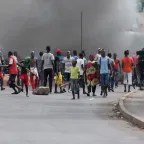
16-02-2019 Amman (ICRC) – The International Committee of the Red Cross (ICRC) facilitated on 14 February a meeting to discuss and exchange expertise with representatives of the Ministry of Health, …
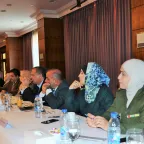
Try one of the following resources:
Created in 1863, the ICRC library, alongside the ICRC archives, provides an indispensable documentary reference on the organization itself and international humanitarian law.
International humanitarian law is based on a number of treaties, in particular the Geneva Conventions of 1949 and their Additional Protocols, and a series of other instruments.
Customary international humanitarian law consists of rules that come from "a general practice accepted as law" and that exist independent of treaty law.